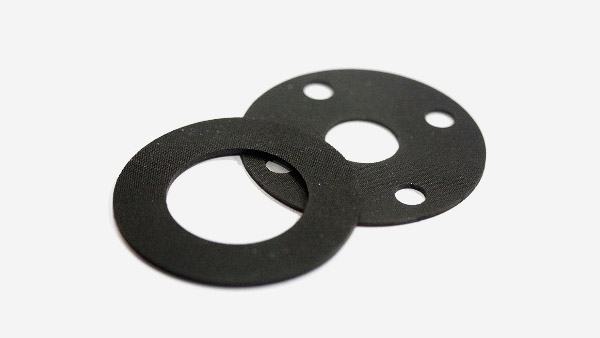Flange Gaskets: Essential Sealing Solutions for Industrial Applications
Flange gaskets play a vital role in ensuring the integrity of piping systems by creating a reliable seal between flanges. These indispensable components are widely used in industries such as oil and gas, chemical processing, power generation, and more, where the secure transportation of fluids and gases is critical.
This comprehensive guide explores flange gaskets, their types, materials, benefits, and applications. By the end of this article, you’ll have a clear understanding of why flange gaskets are essential for maintaining efficiency and safety in industrial systems.
What Are Flange Gaskets?
A flange gasket is a mechanical seal designed to fill the space between two flanges and prevent leakage of fluids or gases. These gaskets are placed between the flanges and compressed during bolting to form a leak-proof connection.
The effectiveness of a flange gasket depends on its material, design, and compatibility with the operating environment, including temperature, pressure, and chemical exposure.
Why Are Flange Gaskets Important?
1. Leak Prevention
Flange gaskets create a tight seal that prevents leakage, ensuring the safe transport of fluids or gases.
2. System Integrity
By sealing the flange connection, gaskets maintain the integrity of the entire system, reducing downtime and maintenance costs.
3. Safety
Preventing leaks of hazardous substances minimizes environmental risks and enhances workplace safety.
4. Cost Efficiency
Flange gaskets help avoid costly repairs and system failures by providing long-lasting sealing solutions.
Types of Flange Gaskets
Flange gaskets are classified into three main categories based on their design and application:
1. Non-Metallic Gaskets
- Made from materials like rubber, PTFE, or graphite.
- Best suited for low-pressure and low-temperature applications.
- Commonly used in water pipelines and general-purpose applications.
2. Semi-Metallic Gaskets
- Combine metal and non-metal materials for enhanced performance.
- Ideal for medium-pressure and medium-temperature conditions.
- Examples include spiral wound gaskets and corrugated metal gaskets.
3. Metallic Gaskets
- Made entirely of metal, offering excellent resistance to high pressure and temperature.
- Used in extreme industrial environments, such as refineries and power plants.
- Examples include ring joint gaskets (RJG) and lens gaskets.
Materials Used in Flange Gaskets
The choice of material is crucial to the gasket’s performance and durability.
1. Rubber
- Flexible and cost-effective.
- Suitable for low-pressure systems involving water or air.
2. PTFE (Polytetrafluoroethylene)
- Exceptional chemical resistance.
- Commonly used in chemical processing applications.
3. Graphite
- High-temperature resistance with excellent sealing properties.
- Ideal for steam and chemical environments.
4. Metal
- Includes stainless steel, copper, and other alloys.
- Handles high-pressure and high-temperature conditions.
5. Composites
- Combine materials like rubber and metal for versatile performance.
- Used in diverse industrial settings.
Applications of Flange Gaskets
Flange gaskets are indispensable in numerous industries due to their versatility and reliability.
1. Oil and Gas
- Ensure leak-proof connections in pipelines transporting oil, gas, and other hydrocarbons.
2. Chemical Processing
- Resist aggressive chemicals and maintain system integrity in corrosive environments.
3. Power Generation
- Provide reliable sealing in high-temperature and high-pressure steam systems.
4. Water Treatment
- Prevent leaks in water pipelines and desalination plants.
5. HVAC Systems
- Used in ductwork and piping to ensure efficient heating, ventilation, and air conditioning.
Benefits of Using Flange Gaskets
- Enhanced Safety: Prevent leaks of hazardous substances.
- Operational Efficiency: Minimize system downtime and energy losses.
- Customizability: Available in various materials and designs to meet specific needs.
- Cost Savings: Reduce maintenance costs and extend system lifespan.
Factors to Consider When Choosing a Flange Gasket
1. Operating Conditions
- Consider temperature, pressure, and the type of fluid or gas being transported.
2. Material Compatibility
- Ensure the gasket material is resistant to the chemicals and environmental factors it will encounter.
3. Flange Design
- Select a gasket that matches the flange type and dimensions.
4. Industry Standards
- Choose gaskets that comply with industry standards like ASME, API, or EN.
Maintenance Tips for Flange Gaskets
- Inspect Regularly: Check for wear, deformation, or damage.
- Clean Flanges: Ensure the flange surfaces are clean before installing a gasket.
- Tighten Bolts Properly: Follow the recommended torque specifications to avoid over- or under-tightening.
- Replace as Needed: Replace gaskets during scheduled maintenance to prevent failures.
Why Choose Rubber Seals and Gaskets for Flange Gaskets?
At Rubber Seals and Gaskets, we provide high-quality flange gaskets designed to meet the demands of diverse industries.
What Sets Us Apart?
- Premium Materials: Durable and reliable gaskets for any application.
- Customization: Tailored solutions for unique requirements.
- Expert Guidance: Professional support to help you choose the right gasket.
- Competitive Pricing: Cost-effective products without compromising quality.
Conclusion
Flange gaskets are essential for ensuring the efficiency, safety, and longevity of piping systems across various industries. With the right material, design, and maintenance, these gaskets can provide a reliable seal in even the most demanding environments.
If you’re looking for top-quality flange gaskets, Rubber Seals and Gaskets has the expertise and products you need. Contact us today to learn more about our solutions and find the perfect gasket for your application!

FAQs
A flange gasket creates a tight seal between two flanges to prevent leaks of fluids or gases.
Consider factors like temperature, pressure, fluid type, and flange design when selecting a gasket.
Flange gaskets are made from rubber, PTFE, graphite, metal, and composite materials, depending on the application.
Enhance the performance of your systems with reliable flange gaskets from Rubber Seals and Gaskets!
